Life is an interesting adventure. Usually we don’t look at it as an adventure. Adventures are for super heroes and special people in books and movies. Adventures involve excitement and risk taking. And at least in the books and movies the fate of the world hangs in the balance. But if we take out the fate of the world level of drama, our lives are adventures. We exist to connect and create, and both of these involve high amounts of risk. We have no idea how things will turn out when we try to make a connection or engage in a creative process. We are dealing with the unknown. How will things turn out? We just don’t know.
We could look at the whole experience as though it were one big game. The problem is we weren’t told the rules. We don’t even know how to tell if we are winning the game. I suppose in older, simpler times the rules were told to us by our wise elders. Life was pretty basic, so winning was also pretty obvious: day to day survival, finding enough to eat, maybe even successfully reproducing yourself through a child. But things are very complex now, and no one listens to the elders any more. Besides, most of them have some level of cognitive impairment anyway. We are stuck trying to figure it out all on our own.
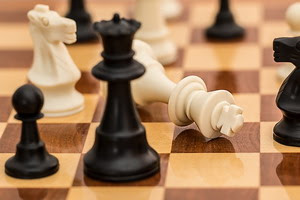
What is the game of life? What are the rules? What constitutes a win these days? These questions used to be the stuff philosophers would argue about. They still do, but where in the past there might be two or three differing viewpoints you got to choose from, now there are thousands. Philosophers are a dime-a-dozen. They come in all shapes and sizes. They make their living telling their supporters what they want to hear, so they will buy their books and like them on YouTube. Some of their stories are pretty fanciful, but since there is no measure of reality with which to assess these stories, we have no way of deciding which story is the best. We end up choosing the story that supports our agendas the best.
What does life itself tell us about the game? Looking at the game board and the pieces of the game can give us clues about how to play. Looking at the structure of the human brain and nervous system tells us a lot about how we are designed to function in life. The brain stem, the oldest part of the brain found in all creatures, contains the wiring for basic survival. We need to feed, sleep, fight or run away from danger, withdraw or appear to be dead when captured by predators, and seek reproduction. So these functions must be a part of the game of life, as they are wired into us from birth.
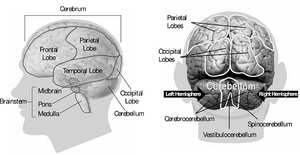
The next oldest portion of the brain, the cerebellum, found in more evolved creatures like mammals, contains wiring for emotion and social connection. This area of the brain developed because forming social networks and expressing emotion greatly enhanced the survival of the mammals. By working together mammals could defeat predators and gain the upper edge in life’s struggles. This says cooperative social connection is a key part of the game of life.
The most modern portion of the brain is the cerebrum. This is where thinking and creative problem solving happens. Humans have the largest cerebrums leading us to the conclusion that creative problem solving is a fundamental part of the game of life for humans. Large portions of the cerebrum are dedicated to controlling the hands, as our hands are the primary instruments with which we interact with the world. Other huge portions are dedicated to our mouth and lips for speech production, the other major way we participate with the world.
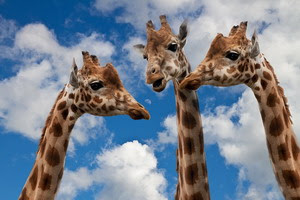
So just by looking at the structure of what we are as human beings physically, we can see that we are designed to tackle the challenge of surviving and reproducing through creative problem solving and the formation of cooperative social networks. We have language abilities and manual dexterity with which to create and connect. Without resorting to philosophy or wishful thinking, we have discerned two of the key objectives of participating with the game of life – to create and to connect in order to enhance our mutual survival.
This may seem really simplistic and obvious, but how many people live their lives with this basic core purpose to life as their prime motivation? Humans survived to reach the top of the food chain through the tremendous skills of mutual participation in order to meet mutual needs. Mutuality is the fundamental cornerstone to human survival. Mutuality means each of us uses our own unique problem solving abilities and creativity to generate survival solutions, which we then contribute to the larger community in exchange for other’s creative survival solutions being available for us to use. We all enhance each other and support each other. Our value to our community lies in our creative service, and we are supported in exchange for that service. This
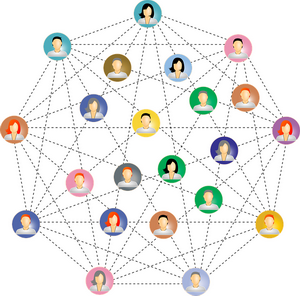
applies to our family, our peers, and to our society.
This looks like a win to me. Winning the game of life appears to me to involve creatively developing skills or solutions that serve the needs of others and offering them in a balanced exchange for getting our own needs met. There may be lots of other wins in life, but this one looks to be pretty basic. Our brain is wired for this type of interaction. The structure of our body supports this type of interaction. I think this may be part of the rules of the game.
Another “rule” we are able to discern has to do with conservation of energy and resources. In most life situations, resources are limited. As much as we

might like to wish it, there is no such thing as a genie in a lamp that will supply us with unlimited resources. This is fundamental to the principle of equal exchange. Since everyone lives under the reality of limited resources, for exchanges to be sustainable long term, they must be equal. If one person always gets the “better deal,” then eventually the other person will be depleted and exchange will end. Yet everyone wants to be the one that gets more than everyone else. This is unsustainable and a failure approach to life. Somehow people think beating everyone else and getting all the goods for yourself makes you the winner. In truth this can’t work, so everyone simply stops participating with you and you are left to try to survive alone. Historically kings and the like got around this by giving away a lot of their gains to those that would be loyal to them, essentially paying for friends to play with.
A big pattern we are encountering these days is there are a lot of people who believe they should be supported without having to participate or contribute

anything. This is just like the failure approach mentioned above in that it is unsustainable for the same reasons. There is no genie with unlimited resources to keep this illusion going. These people invent fairy tales about government or big business having unlimited resources. They believe they are special simply because they exist and they should get those resources without any valuable exchange. This is a necessary fairy tale for parents with children under age 7, because truthfully children that young don’t have much value to contribute other than cuteness. If we didn’t support this dependency for some period of time, humans would die out pretty quickly. The problem is we keep lengthening the dependency period until the children become adults and now have no skills for generating any useful exchanges with life. More troubling, they have no desire to develop useful participation with life. They have been coddled into becoming failures at the game of life. But the fairy tale story is that they are really the winners because they are all little royalty that deserve to be taken care of for life. Only invalids need to be taken care of.
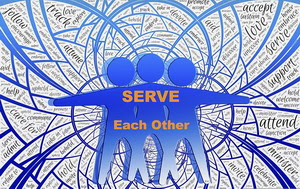
So the adventure of the Game of Life is not really as mysterious as we initially thought. Our very bodies and brains tell us the most basic rules to the game. Survival in a world of limited resources with many forms of competition teaches us more about the rules. While there are many ways to take short cuts to acquiring our survival needs, there are very few that will work long term. Life is all about the long term. Creative problem solving and mutuality based communal participation are two of the most basic strategies that work in the long run. Are you learning these so you can be a winner at life?
